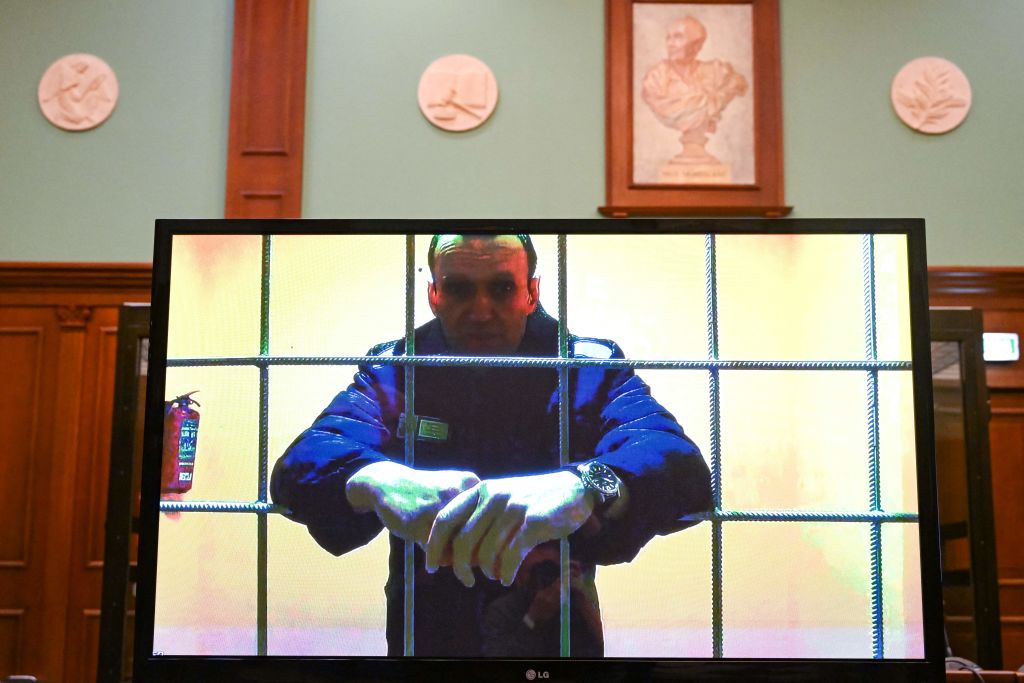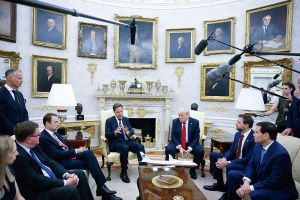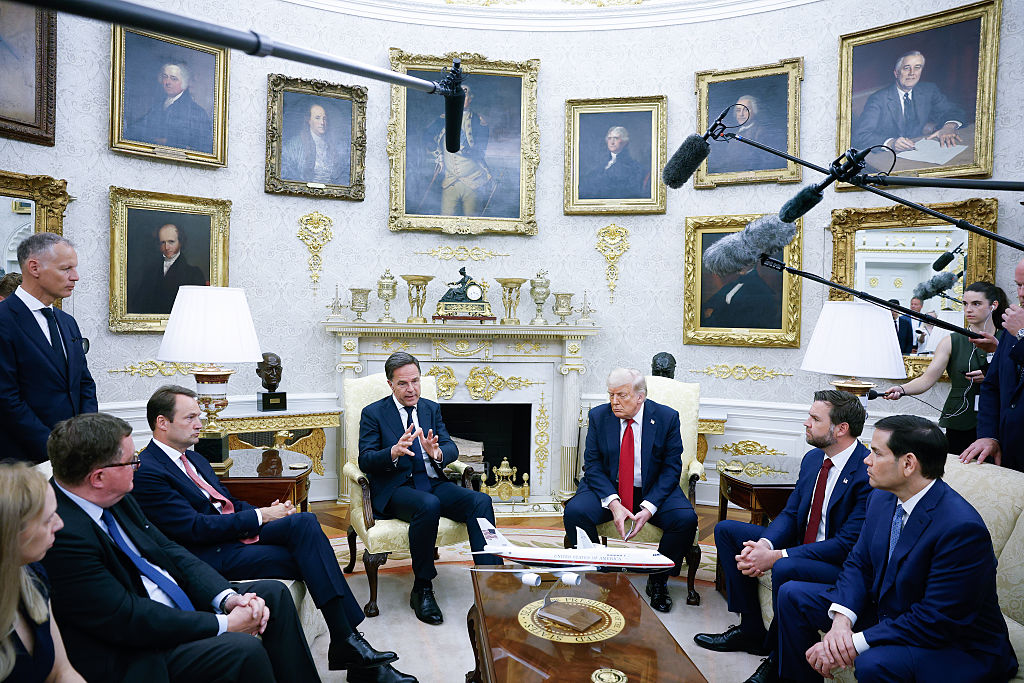As Russian opposition leader Alexei Navalny is once again in court, facing charges that could extend his time in prison by thirty or more years, he is showing that he is not giving up his uneven but unyielding challenge to the Putin regime.
When Navalny returned to Russia in January 2021 after recovering from a government attempt to poison him, it was to no one’s surprise that he was immediately arrested and sent to prison for nine years on spurious parole violation charges (which included the surreal accusation that he was in breach for not reporting to the police while he was in a coma). Since then, he has faced an escalating campaign of pressure, being repeatedly sent into solitary and punishment cells, sometimes simply for not buttoning his prison uniform correctly. In the brief period before the judge ruled that his latest trial would be held on camera, he was looking noticeably emaciated.
His Anti-Corruption Foundation (FBK) — which embarrassed the Kremlin with slickly-produced videos highlighting embezzlement by senior officials, up to and including Vladimir Putin himself — was declared an “extremist organization” and he is being charged with its creation. He may yet face actual terrorism charges, which could see him kept behind bars for life. (The basis of this appears to be that the suspect arrested for the killing of nationalist blogger Vladlen Tatarsky once registered to take part in an anti-Kremlin tactical voting scheme promoted by FBK.)
It is clear that the Kremlin fears Navalny. He is being kept alive lest he become a martyr, but as the regime becomes increasingly authoritarian, it is more determined to try and keep him away from politics, especially before the 2024 presidential elections. It is not, of course, that the political technologists of the Presidential Administration doubt that Putin will win: they have always made sure of that, but that they are concerned about just how much rigging of the vote they need to do to get a sufficiently impressive result. The more obviously dodgy the process, the greater a risk of active protests or simply the delegitimization of the outcome. After all, it was outrage at the 2011 parliamentary elections and 2012 presidential vote that triggered the Bolotnaya Protests, the largest such anti-government actions during Putin’s time in power.
However, Navalny clearly has not been broken, and is able to communicate with the outside world sporadically through his lawyers. He has used the opportunity of the trial to launch a new mass campaign intended both to mobilize opposition to the war and to use that to turn public opinion against Putin. He is characteristically ambitious, vowing: “We will conduct an election campaign against war. And against Putin. Just that. A long, stubborn, exhausting but fundamentally important campaign where we will turn people against the war.”
Although the Kremlin has become increasingly authoritarian, it has not managed to control online debate (not least because an equivalent of China’s “Great Firewall” is not possible thanks to the different architecture of the Russian internet), and activists, dissident nationalists and liberals alike continue to attack the government and even organize in the virtual realm. This is where Navalny hopes that his new campaign will take root and spread “according to the laws and technologies of good election campaigning: interviewing everyone, targeting hundreds of different groups, choosing an approach to each, identifying those who are on the fence and changing their minds.”
To this end, he appealed especially for software engineers, sociologists and political activists to volunteer to build a “creative” and “adaptable” strategy to fight an “election campaign against the candidates named ‘War’ and ‘Putin,’” such that “we’ll change many people’s minds. We’ll sow doubts in almost all of them.”
It is easy to dismiss this as a pipe-dream. Navalny himself acknowledged the risks for anyone involved, as “our activities will, of course, be declared illegal and subversive… All the forces will be thrown to combat it. That’s fine, we’ll throw our forces into the fight against the apparatus of war, corruption and stupidity.” The government will do everything it can to prevent this campaign from getting anywhere, blocking messages when it can, arresting and repressing activists when it must.
In many ways, though, that is also the point from Navalny’s perspective. The old Leninist credo of “the worse, the better,” something he learned from the nineteenth-century nihilist Nikolay Chernyshevsky, is perhaps alive and well. The more brutal and brutish the regime, especially in the lead-up to elections (and regional elections are due sooner, in September), the less legitimate it becomes. There is a certain ruthlessness in encouraging people to protest at a time when the Kremlin is increasingly willing to use violence to maintain its control, but Navalny’s willingness to return to Russia and not follow the comfortable path of the celebrity expat revolutionary speaks to a ruthlessness towards himself as much as his followers: even if it is the meek who shall inherit the earth, it is the ruthless who get the change it.
This article was originally published on The Spectator’s UK website.

























